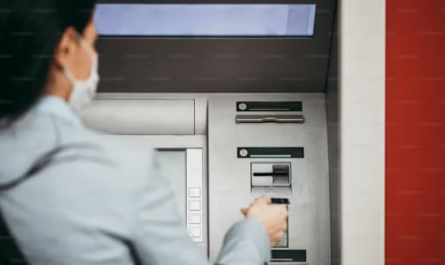| Overview: Corporate Fixed Deposits are interest-bearing investment instruments offered by companies, enabling individuals to earn higher returns compared to bank deposits. These deposits provide flexibility in tenure, attractive interest rates, and convenient options for investors seeking safer, fixed-income avenues with predictable returns. |
Corporate Fixed Deposits: A Smarter Way to Grow Your Savings
Corporate Fixed Deposits (FDs) have emerged as a popular investment choice for individuals seeking stable returns with a slightly higher yield than conventional bank deposits. Offered by financial institutions and companies, these deposits allow investors to diversify their portfolio while securing predictable earnings. For conservative investors, they present an appealing mix of fixed returns and flexible options.
Get high ROI with 8.4% on Fixed Deposits. Invest today
However, before making a commitment, it is essential to assess the benefits, safety aspects, and tax implications of such investments. By carefully analysing these factors, one can make informed decisions that balance returns with security. Let us explore the key advantages, risk considerations, taxation, and selection tips in detail.
Understanding Corporate Fixed Deposits
Corporate fixed deposits are investment products offered by companies, Non-Banking Financial Companies (NBFCs), and financial institutions. Similar to bank FDs, they involve depositing a lump sum amount for a fixed tenure at a predetermined interest rate. However, corporate FDs come with some unique features that set them apart from traditional bank deposits.
Benefit of Investing in Corporate FD
Corporate Fixed Deposits offer a range of advantages that make them attractive to investors seeking predictable income. Beyond fixed interest, they provide flexibility and tailored options.
Higher Interest Rates
- Corporate FDs generally provide better returns compared to traditional bank deposits.
- The rates are often 1% to 3% higher, making them appealing for individuals looking to maximise earnings without venturing into high-risk investments.
- Senior citizens are usually offered additional interest benefits, enhancing their savings potential.
- For example, Airtel Finance Fixed Deposit provides competitive interest rates, making it an attractive option for those seeking steady growth.
Flexible Tenure Options
- Investors can choose from short-term or long-term tenures, depending on financial goals.
- This flexibility ensures that funds are not unnecessarily locked in, allowing for better financial planning.
Regular Income through Interest Payouts
- This feature is useful for retirees or those seeking monthly interest
- This feature is useful for retirees or those seeking regular supplementary income.
Loan Against FD Facility
- Several firms provide the option to borrow against the FD, ensuring liquidity in times of need.
- This avoids premature withdrawals and helps maintain returns.
Low Entry Threshold
- Corporate FDs often require a lower minimum investment amount, making them accessible to a wider group of investors.
- This ensures that even small savers can benefit from corporate deposit schemes.
Safety
While corporate FDs offer attractive returns, safety remains a critical concern. Investors should carefully evaluate the risk profile before committing funds.
Key points to consider:
- Credit Rating: Always check the CRISIL ratings. Higher ratings indicate stronger repayment capacity.
- Company Credibility: Invest only in well-established companies with a strong financial track record.
- Liquidity Risk: Premature withdrawals may not be allowed or could incur penalties, reducing effective returns.
- Default Risk: Unlike bank FDs, corporate deposits are not covered under deposit insurance.
- Diversification Strategy: Avoid investing all savings in a single FD. Instead, explore options like FD laddering to spread risk.

Evaluating these factors helps balance higher returns with adequate protection for invested capital.
| Mistakes to Avoid: Never invest in corporate FDs solely for higher returns without checking the credit rating. |
Tax Liability
Corporate Fixed Deposits, like other fixed-income instruments, are taxable under current regulations. Investors must be mindful of tax treatment before investing.
Key considerations include:
- Interest Income Taxation: Interest earned on corporate FDs is fully taxable as per the investor’s income tax slab.
- TDS on corporate FD: If the annual interest exceeds the prescribed threshold, companies are mandated to deduct tax at source.
- TDS on corporate FD Exemption: Investors can submit Form 15G/15H (subject to eligibility) to avoid deduction if income is below the taxable limit.
- Impact on Net Returns: Tax outflows reduce effective returns. Check FD tax rules before investing.
- Advance Tax Implications: If liability exceeds the limit, advance tax payments may be applicable.
By considering tax aspects carefully, investors can align deposits with their overall tax planning strategy.
| Facts to Know: Interest on corporate FDs is always taxable, regardless of whether it is reinvested or withdrawn. |
Tips to Choose the Right Corporate Fixed Deposit
Selecting the correct corporate FD requires careful scrutiny. The following points can guide better decisions:
- Check Credit Ratings: Prioritise companies with the highest credit ratings for better safety.
- Evaluate Financial Health: Study the company’s balance sheet, profitability, and history of timely repayments.
- Compare Interest Rates: Avoid choosing solely based on higher rates; weigh safety against returns.
- Look for Liquidity Options: Ensure the FD allows premature withdrawal or offers loan facilities.
- Diversify Investments: Use strategies like FD allocation for risk management.
These measures help safeguard capital while enhancing returns effectively.
| What You Must Know: Diversification is your shield—never rely on a single company’s FD for all savings. |
Final Thoughts: Secure Higher Returns with Confidence
Corporate Fixed Deposits offer an attractive blend of higher interest rates, flexible tenures, and regular income options, making them appealing to investors seeking stable returns. However, safety, taxation, and company credibility must never be overlooked. By evaluating risks and choosing carefully, one can secure better returns without compromising on capital protection.
For investors looking to start, Airtel Finance Fixed Deposit provides a reliable, rewarding option to grow savings with confidence—begin your investment journey today.
Get high ROI with 8.4% on Fixed Deposits. Invest today
FAQs:
1. How safe are corporate fixed deposits?
Corporate FDs are generally safe if you choose a reputable company with a high credit rating. However, they are not insured like bank FDs, so thoroughly research the company before investing.
2. What are the tax benefits on corporate fixed deposits?
Investments in corporate FDs with a tenure of 5 years or more are eligible for tax deduction up to ₹1.5 lakh under Section 80C of the Income Tax Act.
3. What is the tax rate for corporate FD?
The interest earned on corporate FDs is taxable as per your income tax slab rate. TDS is deducted at 10% if the interest income exceeds ₹5,000 in a financial year.
4. Is it good to invest in corporate FD?
Corporate FDs can be a good investment option if you’re looking for higher returns and are willing to take some additional risk compared to bank FDs. However, ensure to diversify your portfolio and choose financially stable companies.



